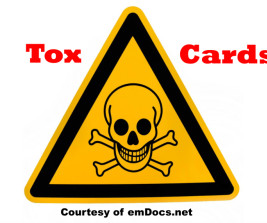ToxCard: Iron
EMDocs
DECEMBER 6, 2024
6 Can see subsequent electrolyte disturbances and dehydration related to severity of GI symptoms. Stage 3 (timing variable) Shock 1 : Can occur within hours for massive ingestion, but may occur over a longer time course. Typically presents in the first few hours following ingestion. This stage does not always occur. 2 L/hr in adults.






















Let's personalize your content